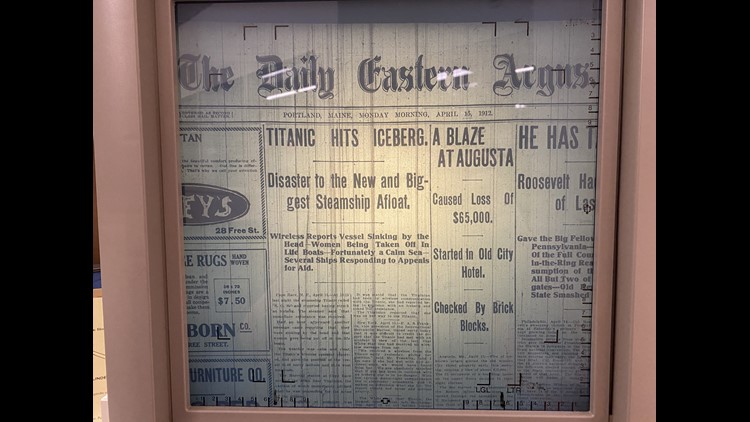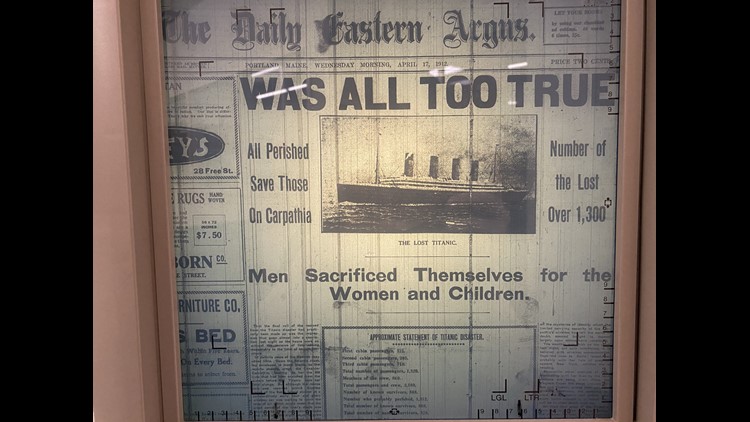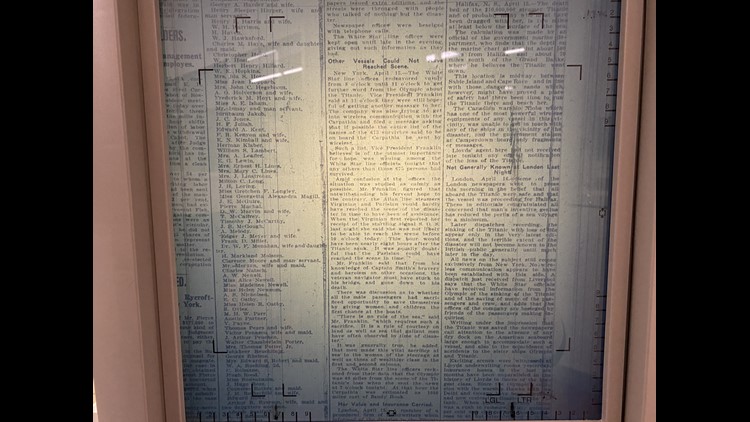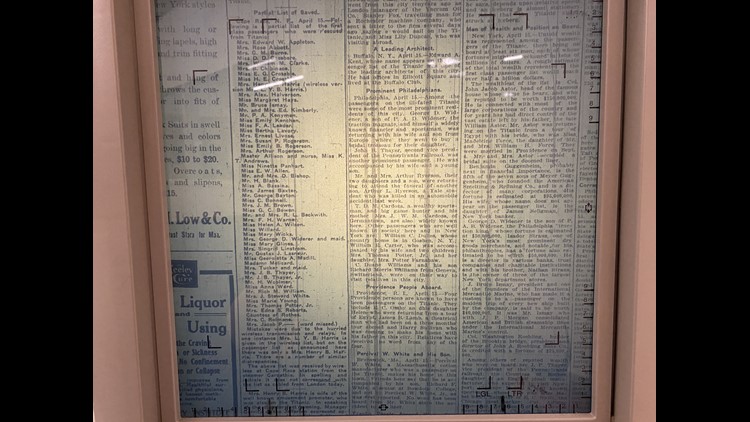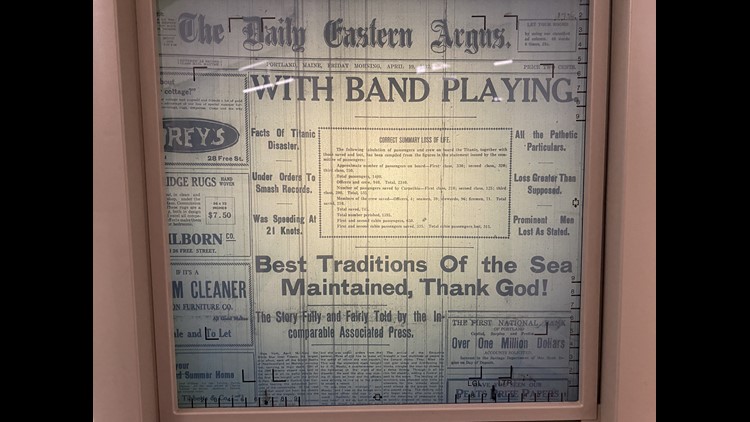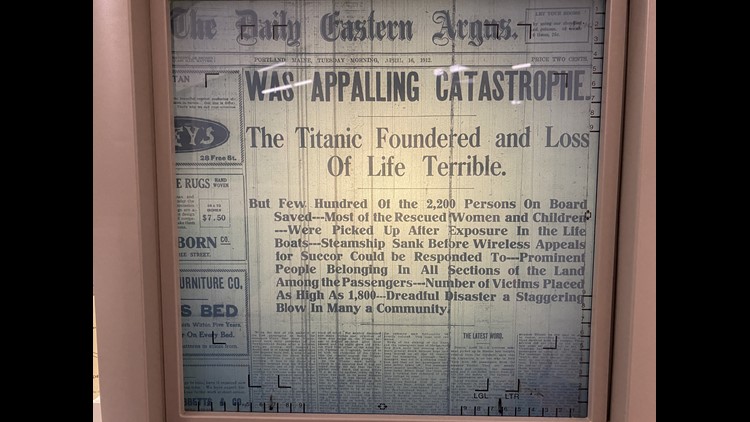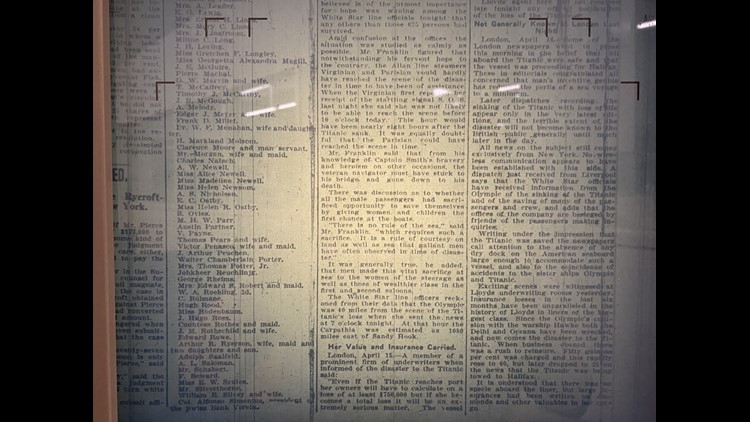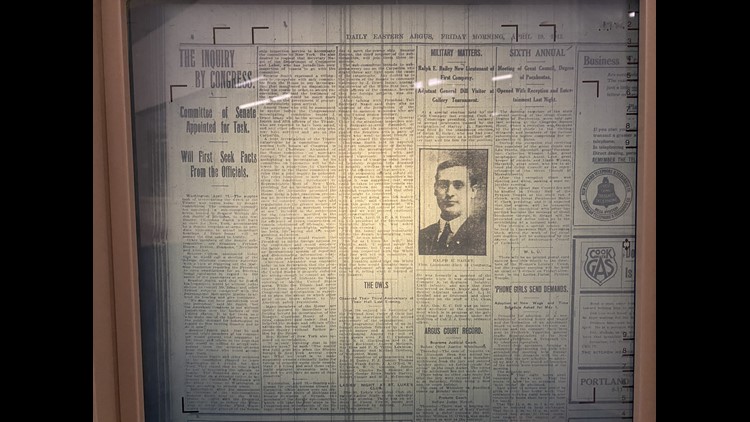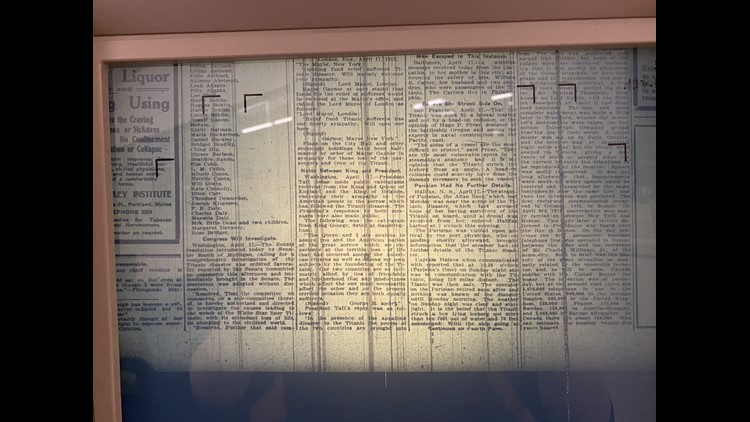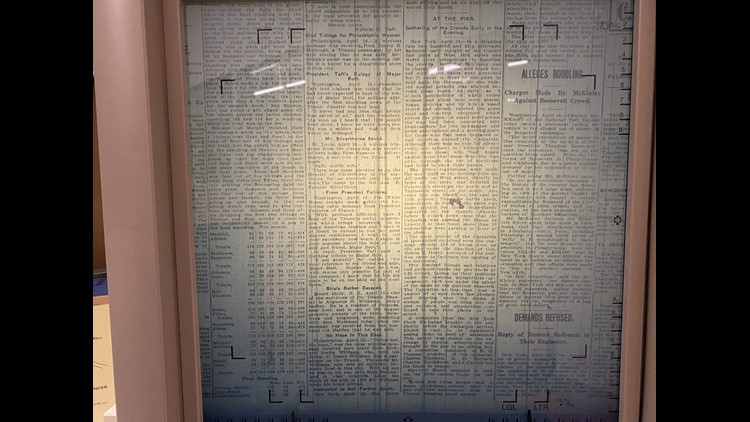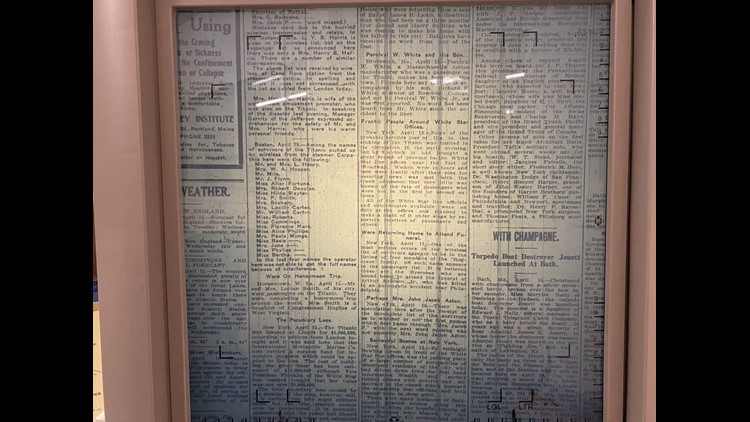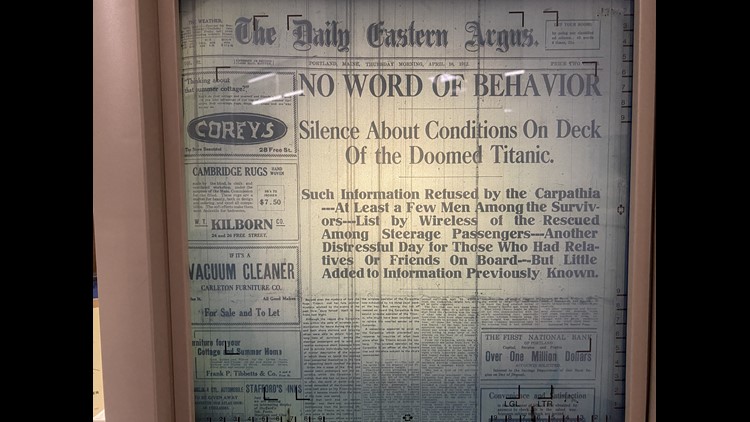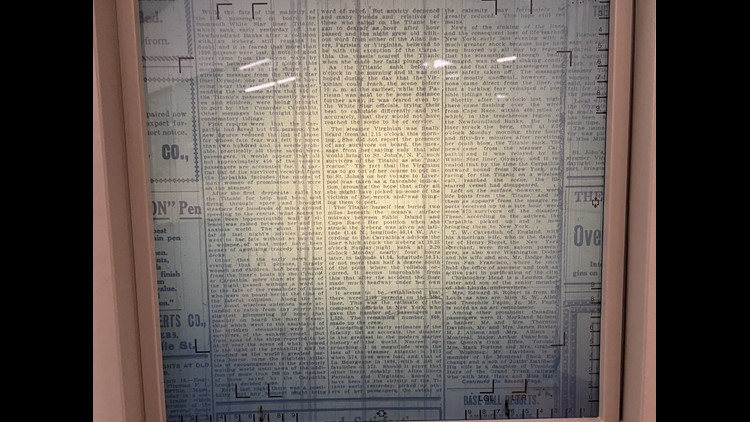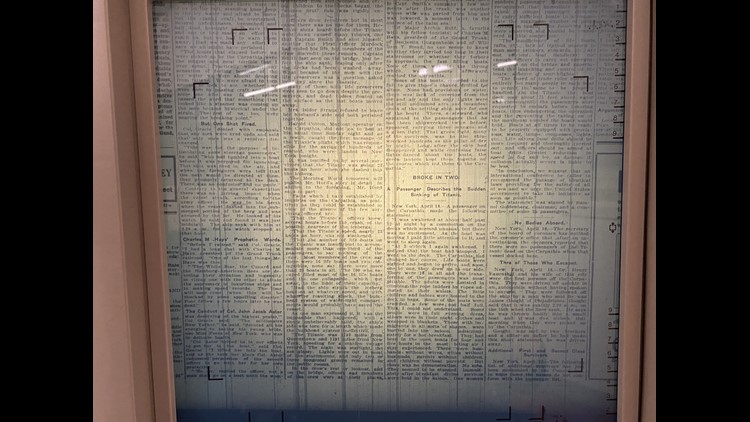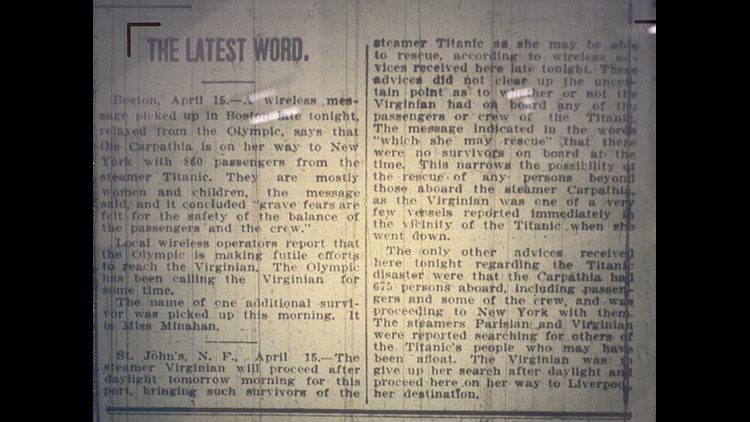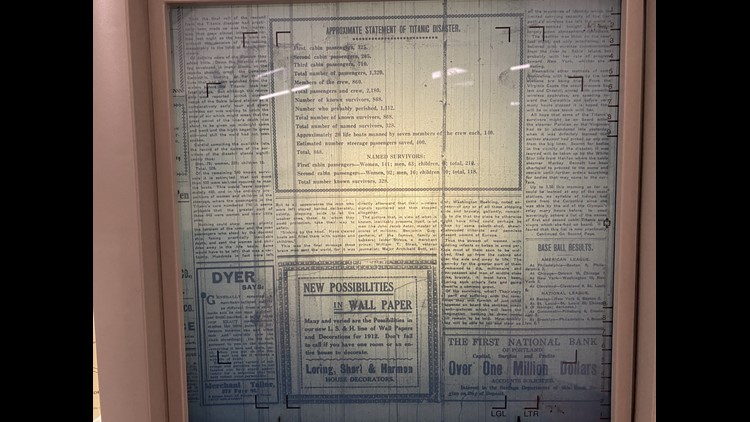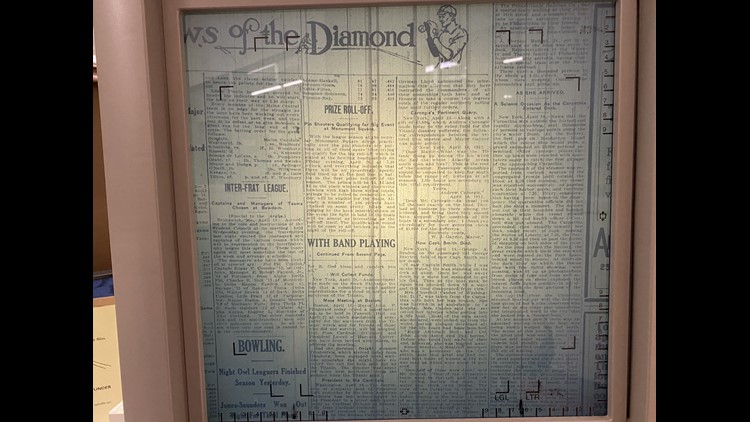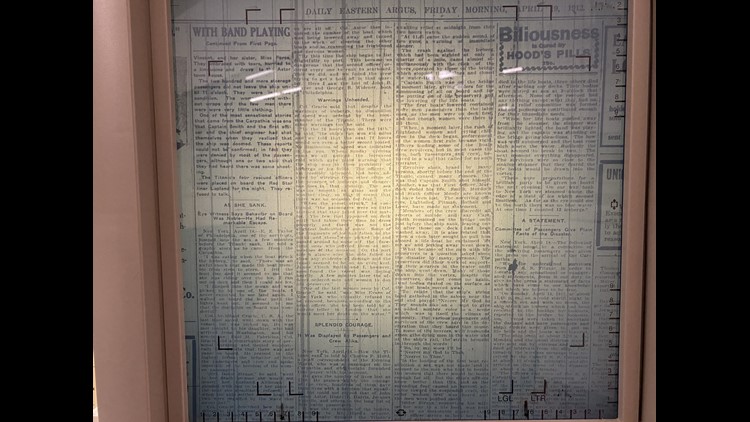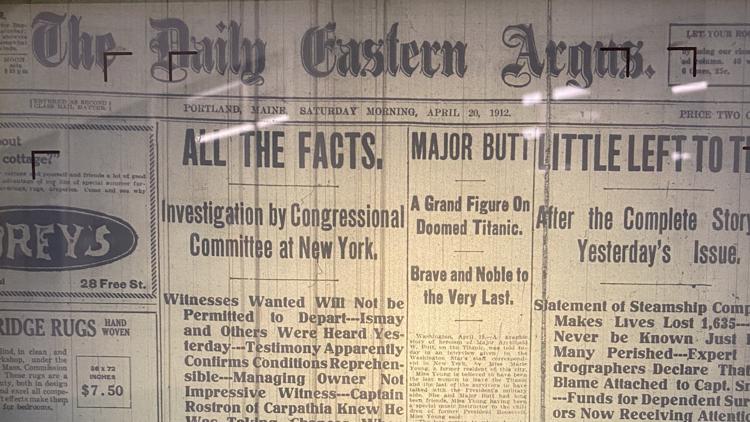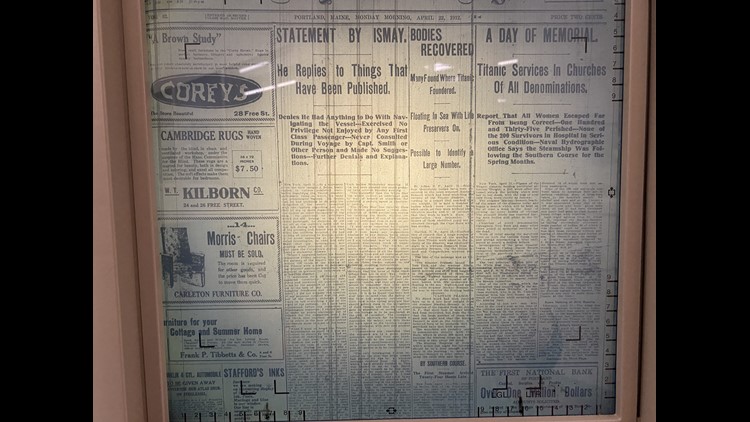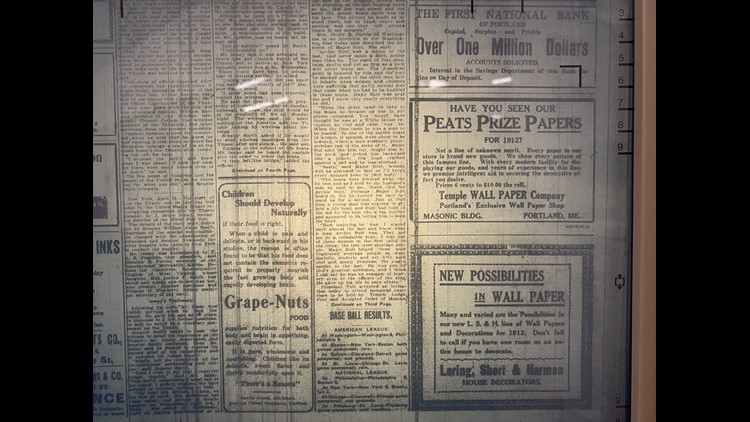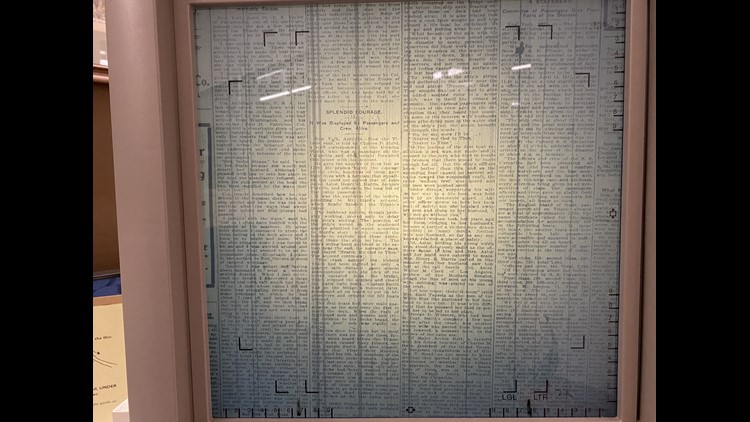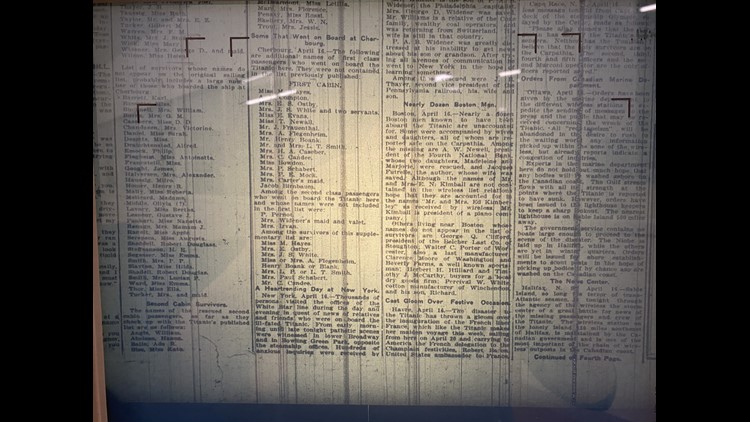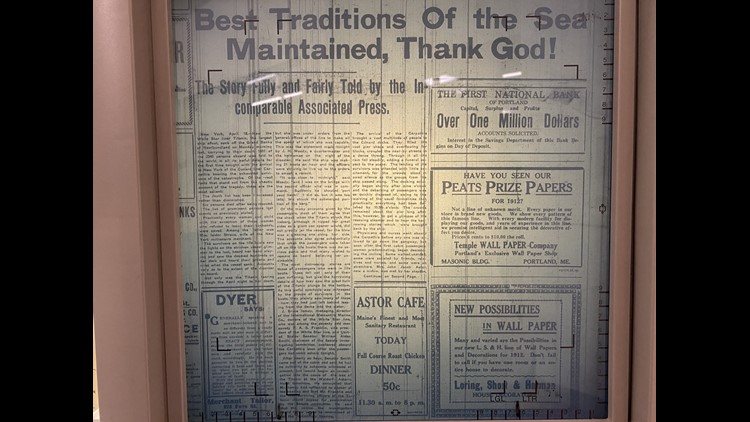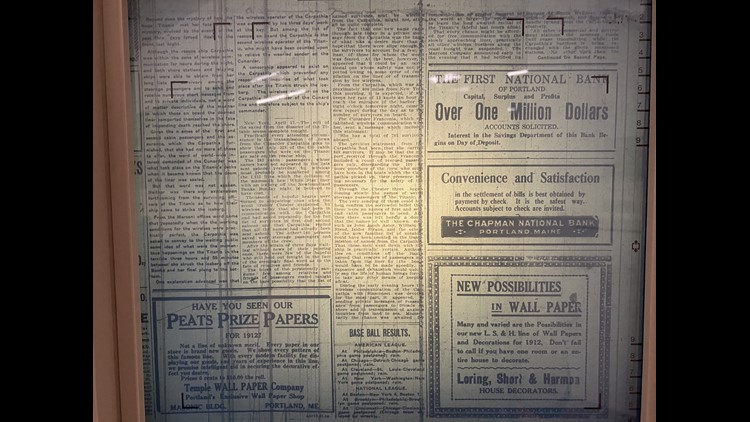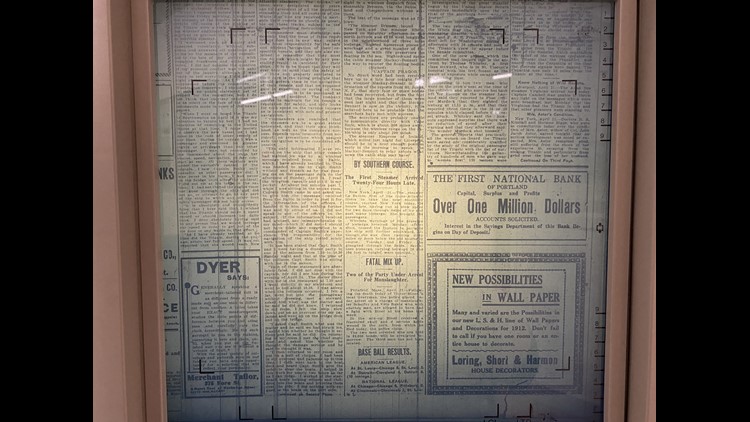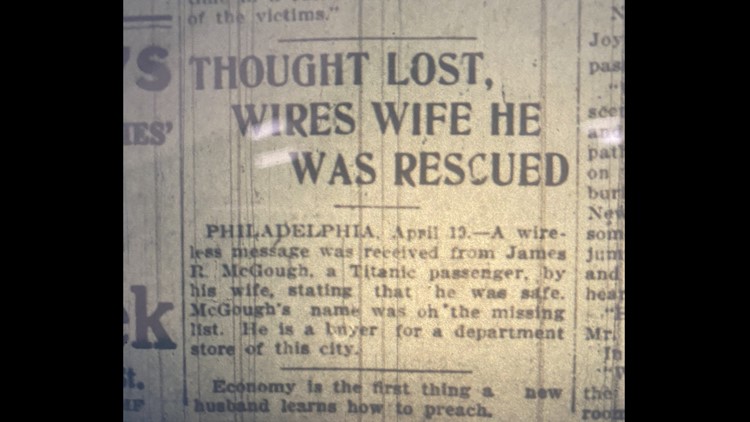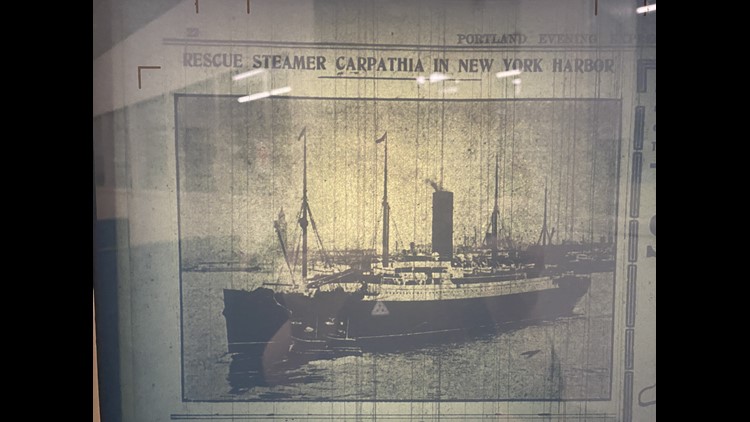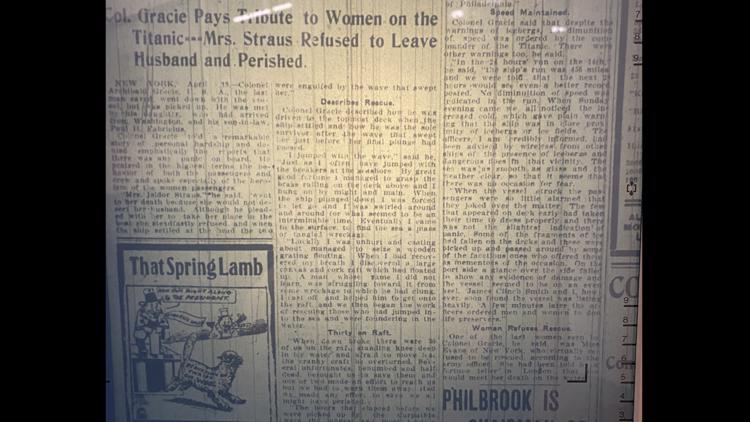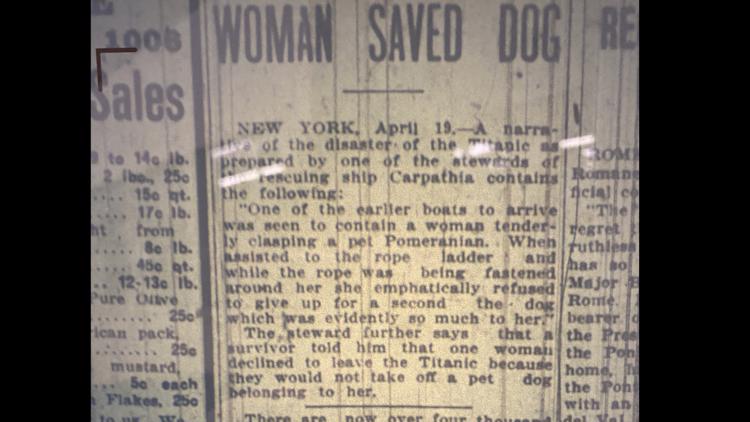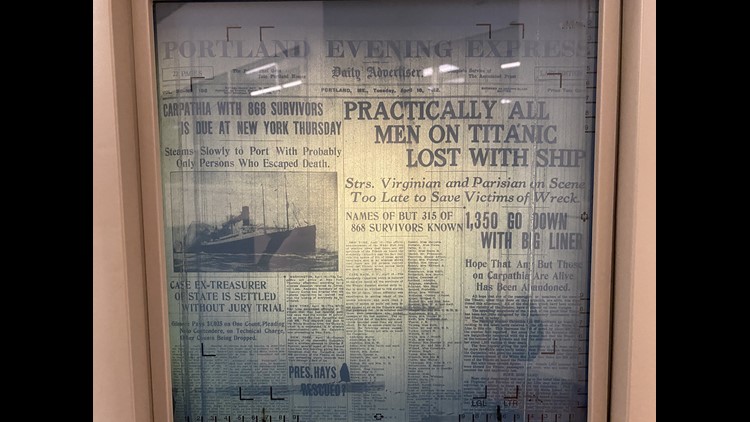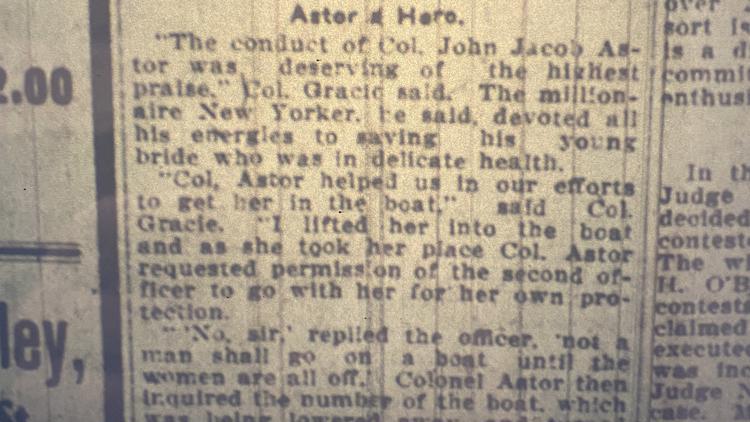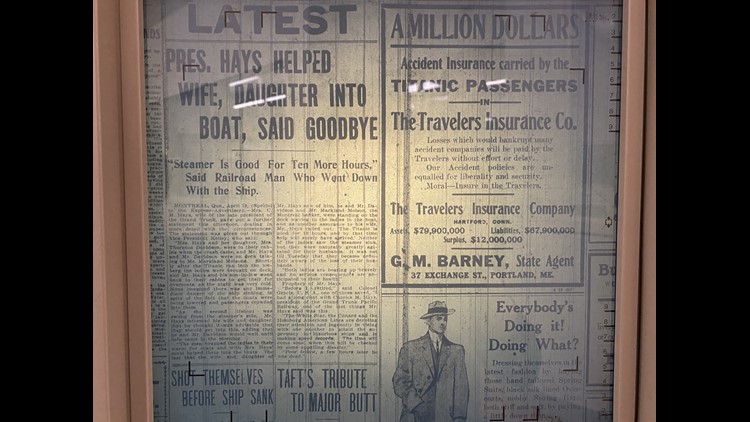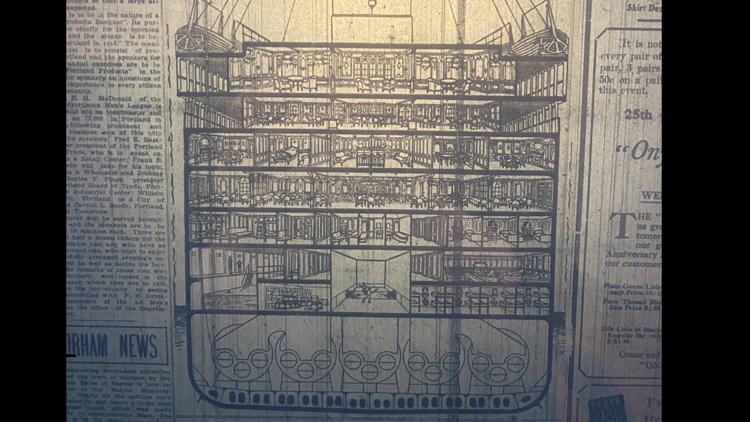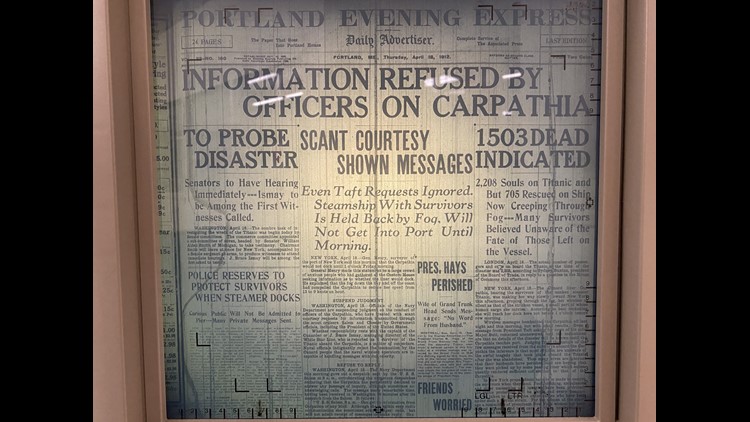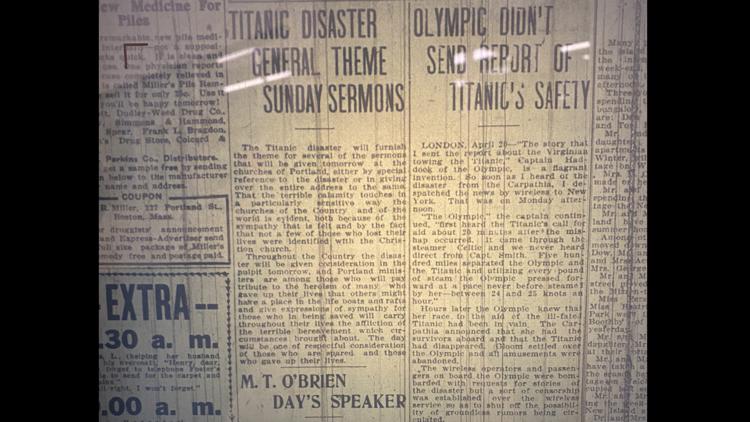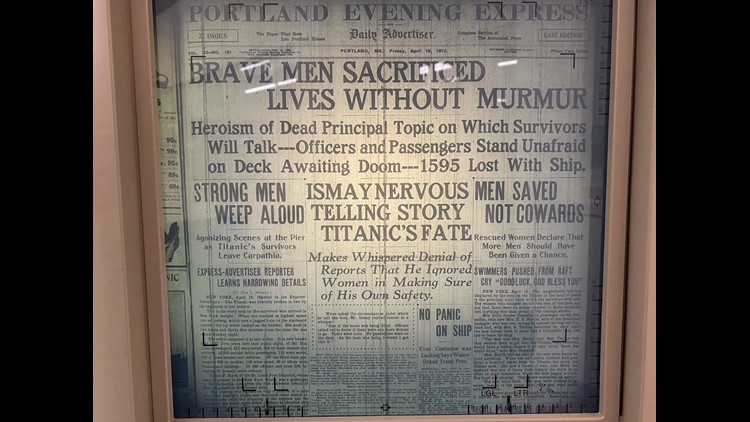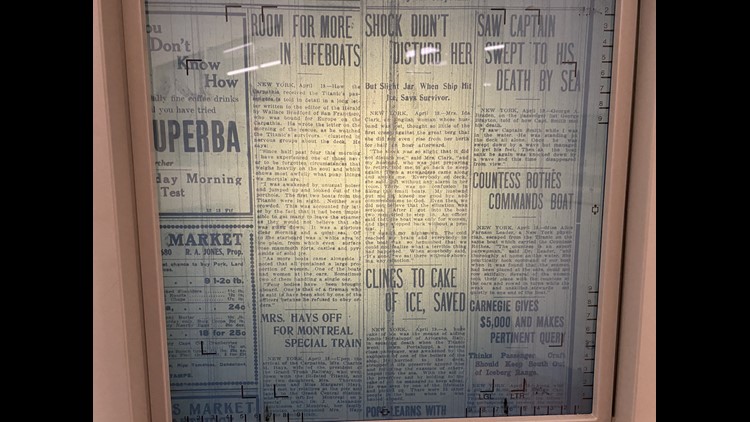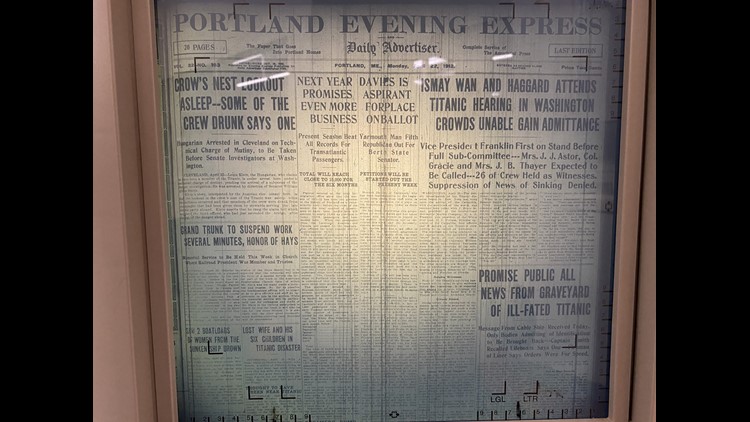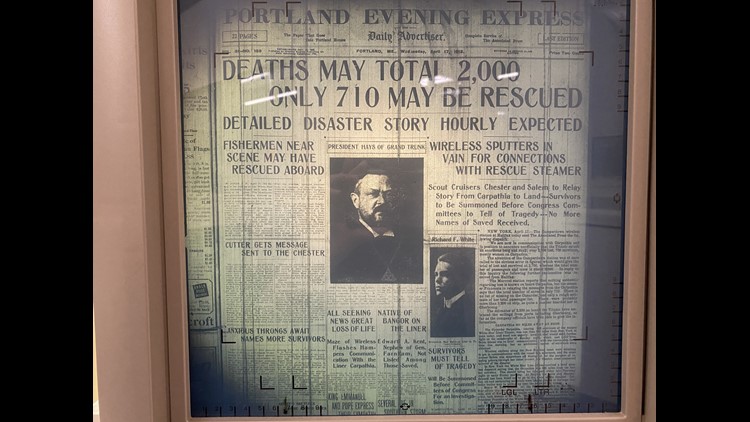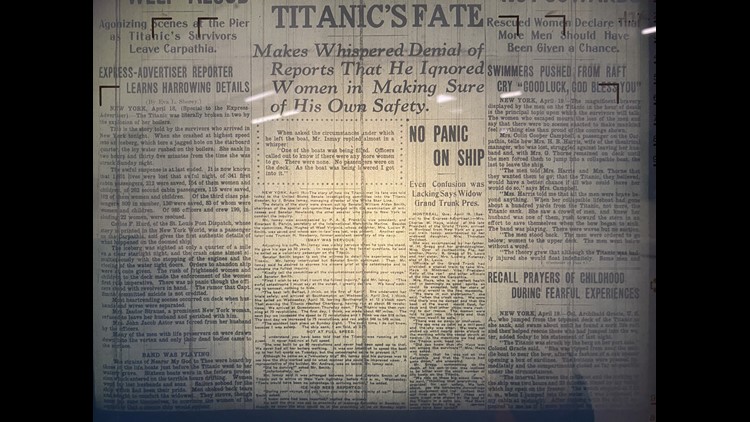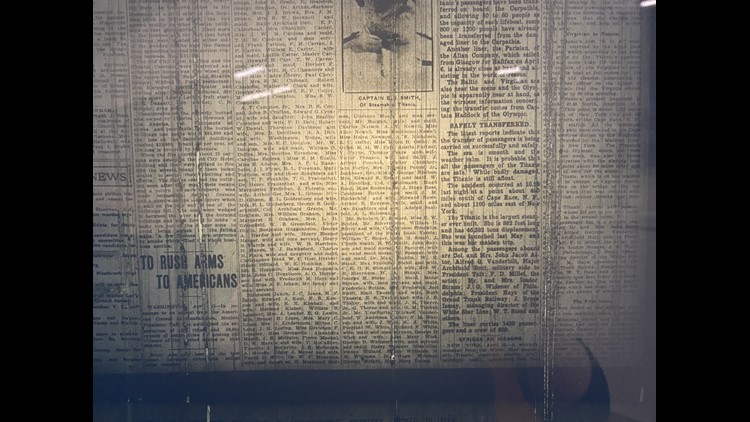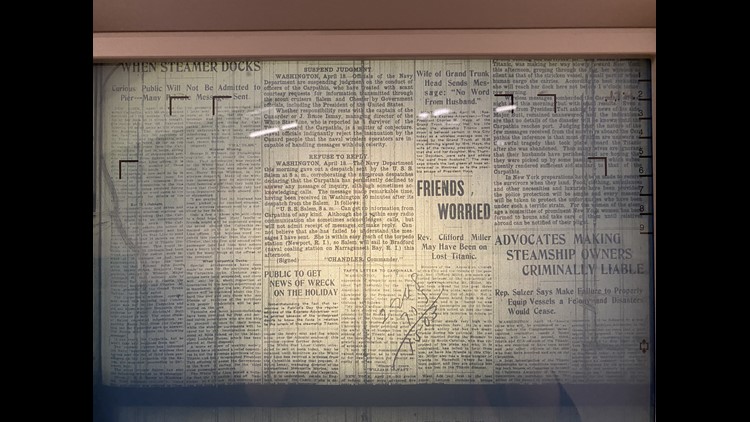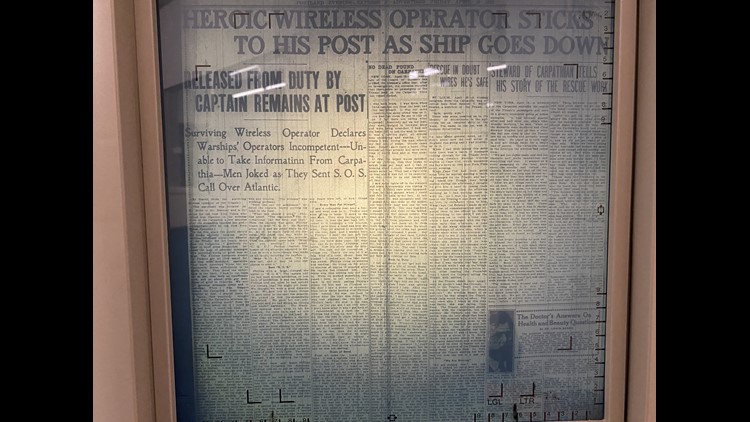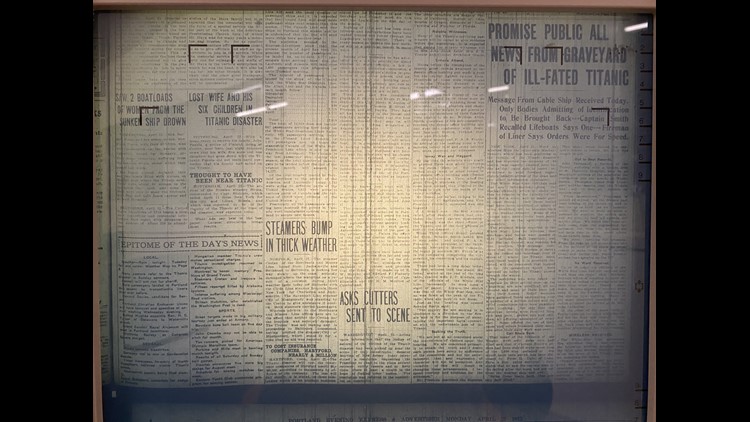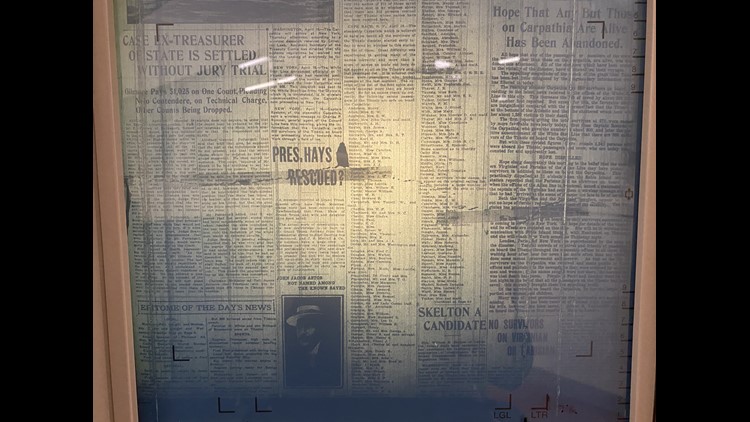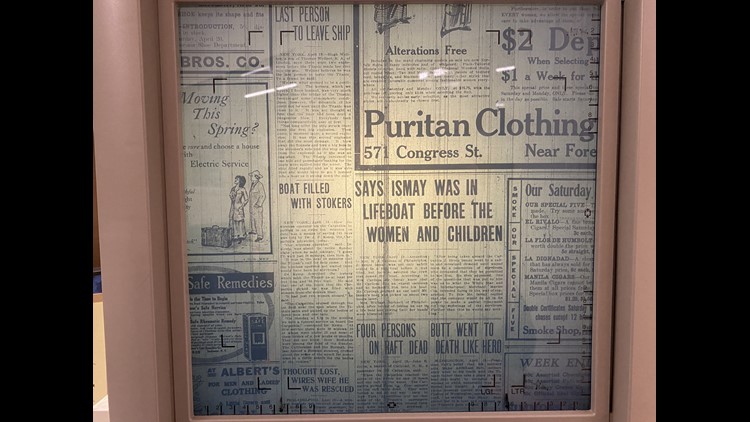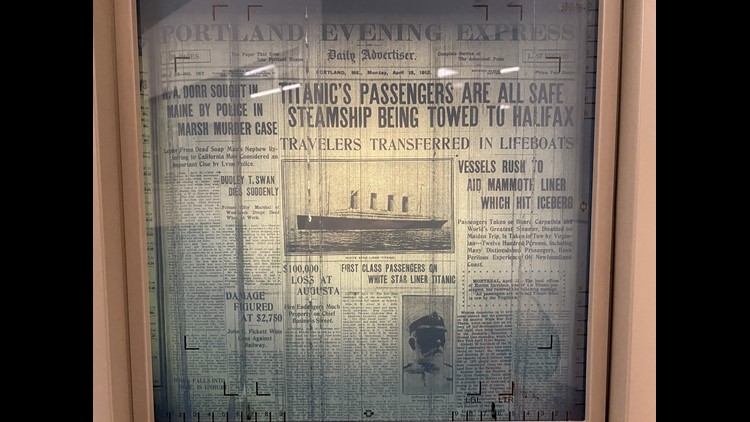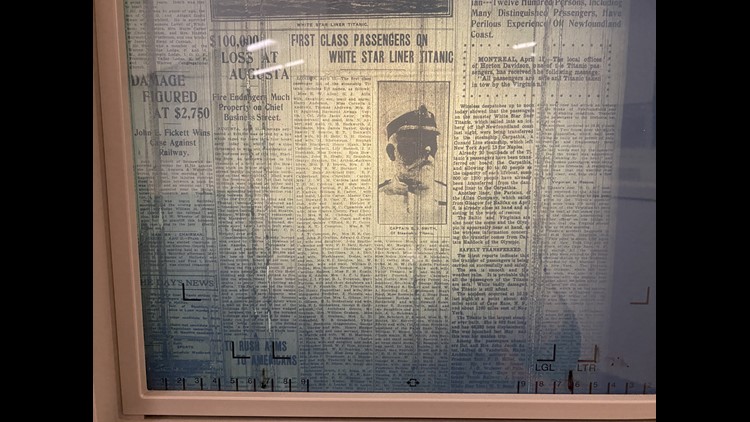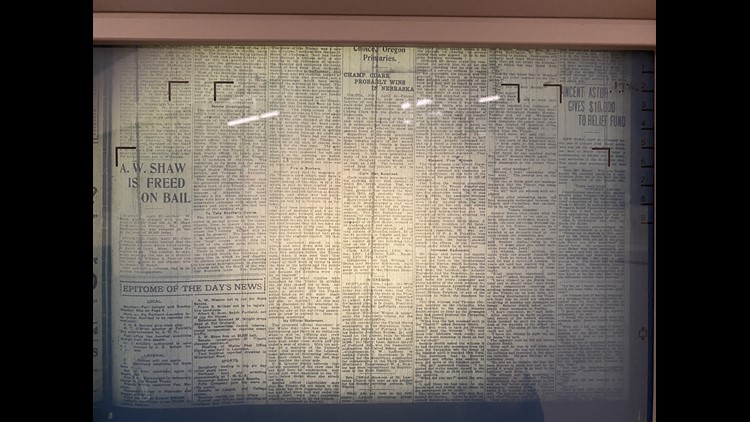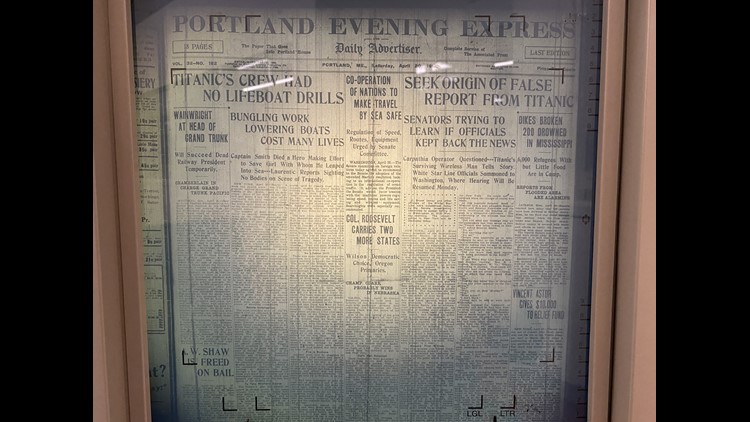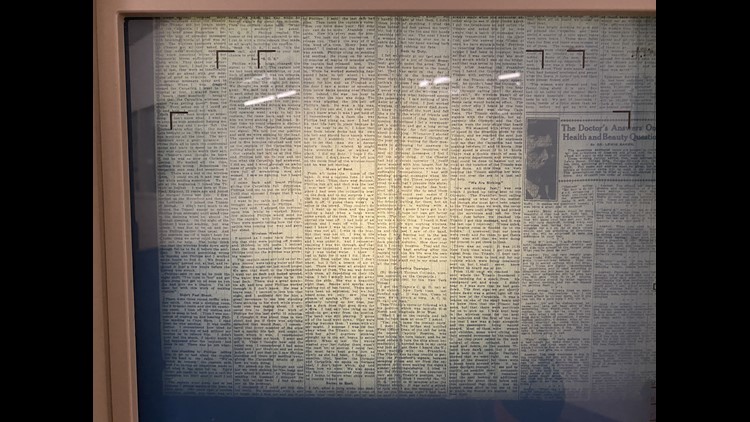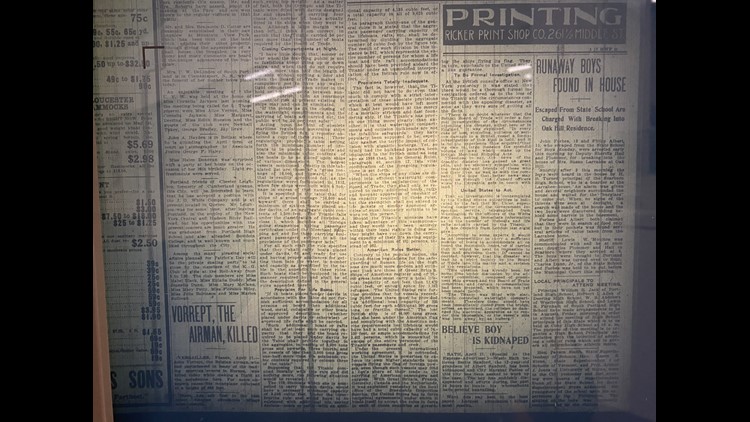MAINE, USA — Sinking 110 years ago, the RMS Titanic claimed more than 1,500 lives, and about seven of them were Mainers, one author writes.
Malcolm Smith, the author of "Mainers on the Titanic," told NEWS CENTER Maine around 14 people from the Pine Tree State were on the vessel when it struck that fatal iceberg. Half of them survived, he said, most of them women.
"It broke down that the females from Maine survived. Men didn't, generally speaking," Smith said.
Of the Mainers that were on the Titanic, most were from Mount Desert Island. They were families that came to Maine for the summer and could spend half a year in the state.
"Employers, neighbors, friends. They were part of our fabric," Smith said.
Families lost at sea
While doing research for his book, Smith said, he found some Maine families had prominent names in MDI, family names like Astor.
One family he came across while doing research? A father and son from Brunswick who died in the sinking. The father's name was Percival White, Sr., and his son was Richard White, a student at Bowdoin College.
Smith said Richard White completed his studies a semester early and was rewarded with a trip aboard the Titanic. Neither he nor his father survived. Richard White's body was recovered, but his father's corpse wasn't.
Percival White's family was from Massachusettes, and that's where Richard White's body was buried, according to the author.
"I found so many ironic situations in these stories. That would be one," Smith said.
Survivors
Charles M. Hays was a prominent name in 1912 when the ship sank. He was president of the Grand Trunk Railroad, which had shaped Portland into what it was in 1900, according to the author.
Hays was actually traveling home via the Titanic to retire. Smith told NEWS CENTER Maine the railroad president built a home to retire in on Cushing Island.
Hays and his wife, Clara, spent summers on Cushing Island, along with four daughters who were young adults in 1912. Charles and Clara Hays were aboard the Titanic with their daughter Margaret, their daughter Orian, and her husband, Thornton Davidson.
Shortly after the ship struck the iceberg, Charles Hays was told the ship wouldn't sink for six hours. There was no need to panic, they thought, according to Smith.
"Didn't even give them a kiss goodbye is what the daughter remembers," the author said.
Clara Hays, Margaret Hays, and Orian Thornton were lowered in a lifeboat, and two hours later, after the Titanic sank, the wife called out for her husband.
"'Charles Hays, are you there?' And never gets the answer she's looking for," Smith said.

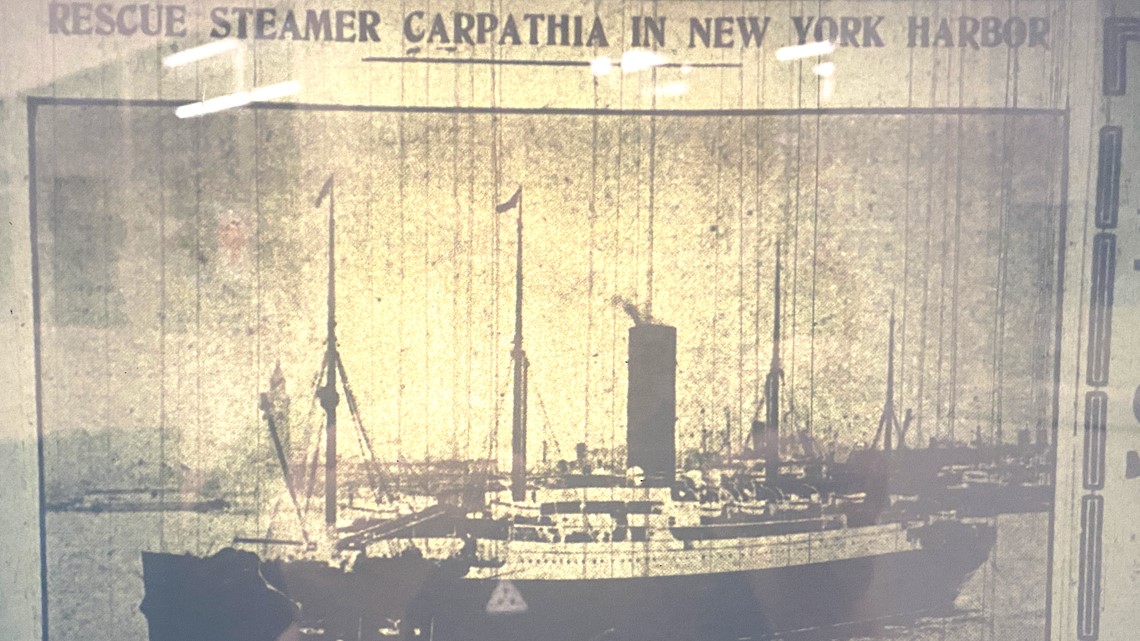
When the RMS Carpathia showed up to bring aboard survivors, Orian offered up the straw hat she was wearing to be set ablaze and be used to signal the ship for rescue, according to the author.
After arriving in New York aboard the Carpathia, Clara Hays, Orian Thornton, and Margaret Hays were met by relatives at the pier and taken to Grand Central Station, according to n article published on April 19, 1912, in the Portland Evening Express.
They left for Montreal on a special train with their family physician.

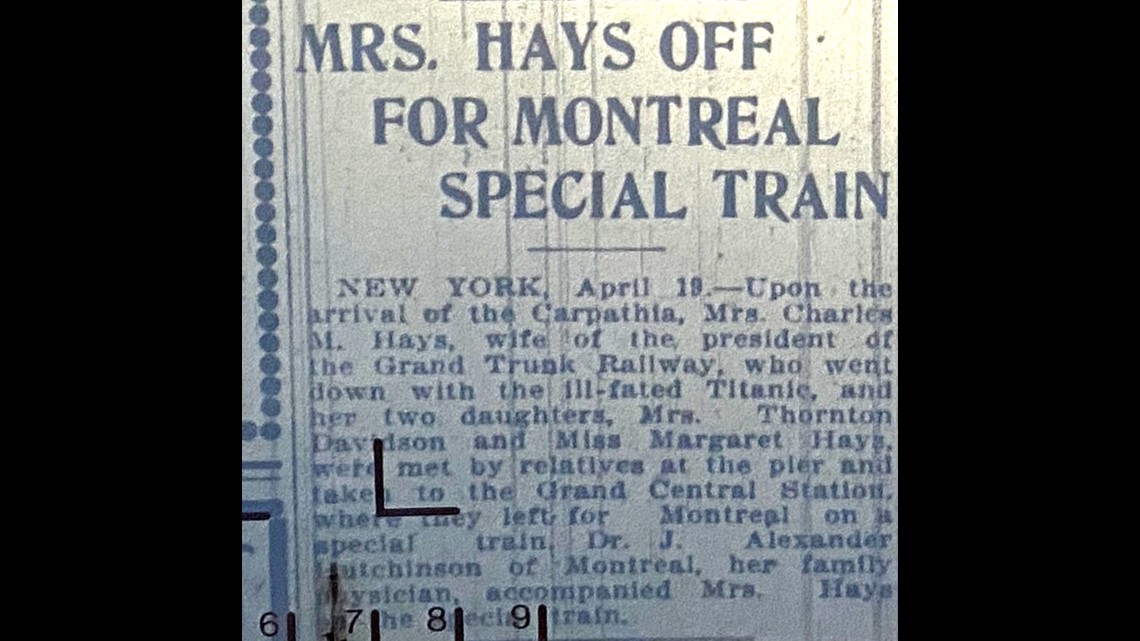
Smith said Clara Hays spent the last 20 years of her life in her home on Cushing Island.
Maine spirit
Looking at Mainers on the ship, Smith said their stories "fit into the storyline of honor."
"Women and children first. Doing the right thing when a lot of people on that sinking ship were not doing the right thing," he said. "They showed Maine Spirit. That's the portrait history has painted for us. I don't see anything other than that. It showed good spirit, the goodness of Maine people at that time."
But 110 years later, some of those stories are in danger of being lost. The author said history gets lost to time.
"I'm happy to preserve them," he said.
Modern interest
Smith does a lot of book talks, and after speaking about his writing, he found everyone knows a little something about the Titanic.
"I don't think the interest has ever really gone away. [It] doesn't seem to be going away soon. The story is so big that you can take any little aspect of it or make it personal to you," Smith said. "It was a very shortened version of life. We're born, we live, [and] we die. For those people, it was all truncated in a very short time."
The author said life lessons from the Titanic are eternal, and the story will live on for quite some time.
"I hope it does," he said. "It's a fascinating slice of history no matter how you look at it."
Portland newspaper Titanic coverage
The gallery below contains pictures taken from microfilm of two Portland newspapers, the Portland Evening Express and the Daily Eastern Argus, the week after the Titanic sank.




